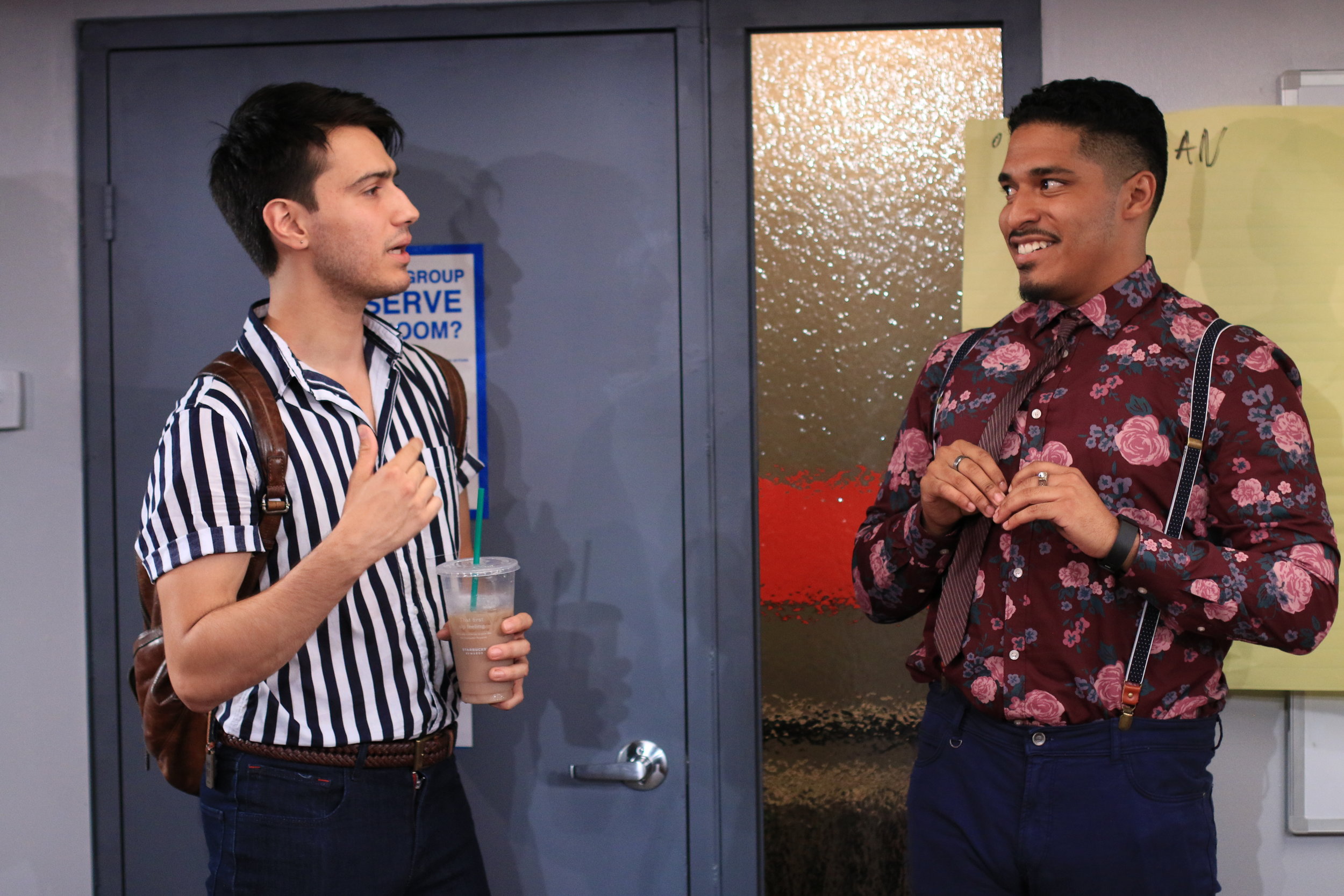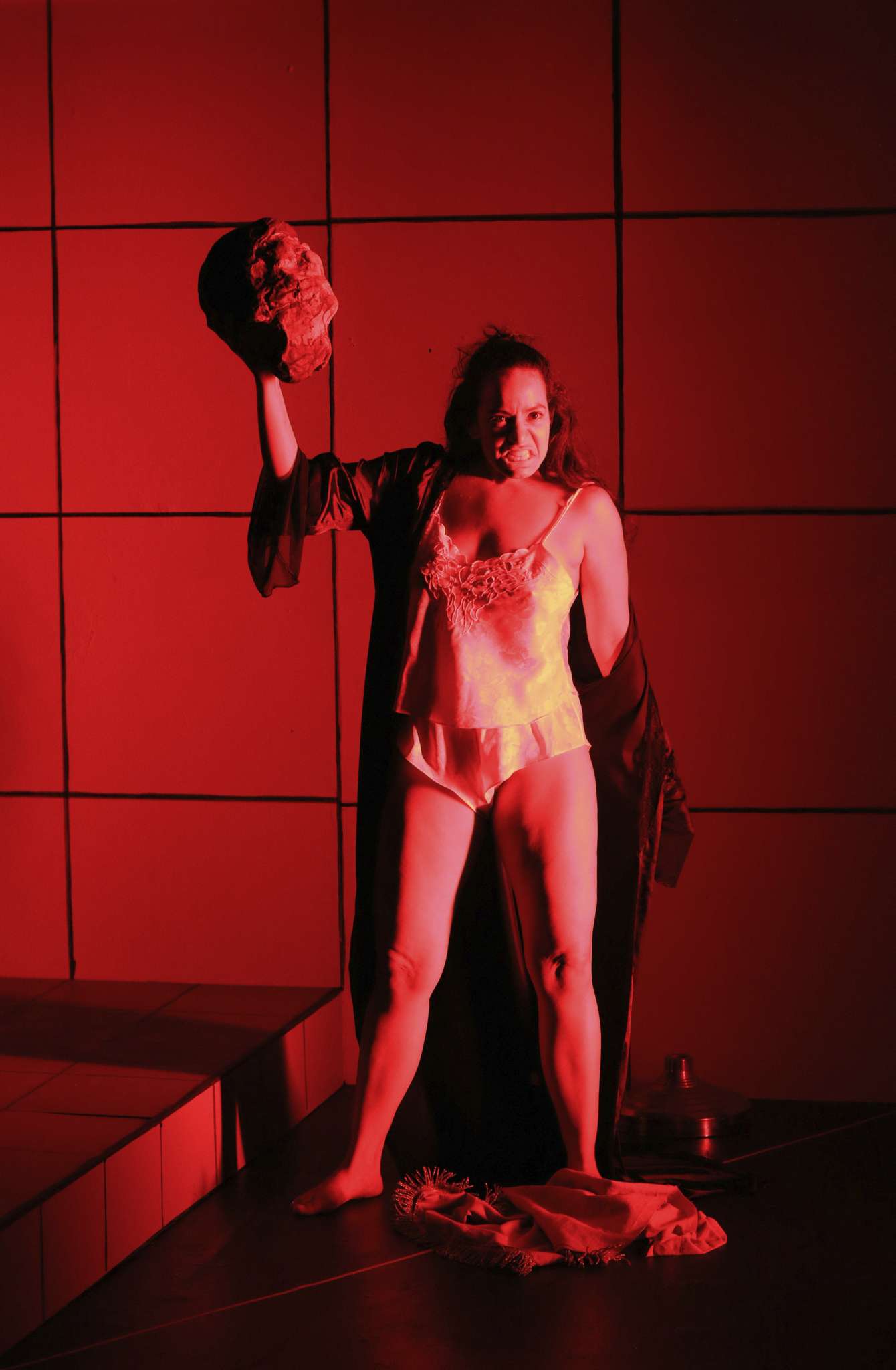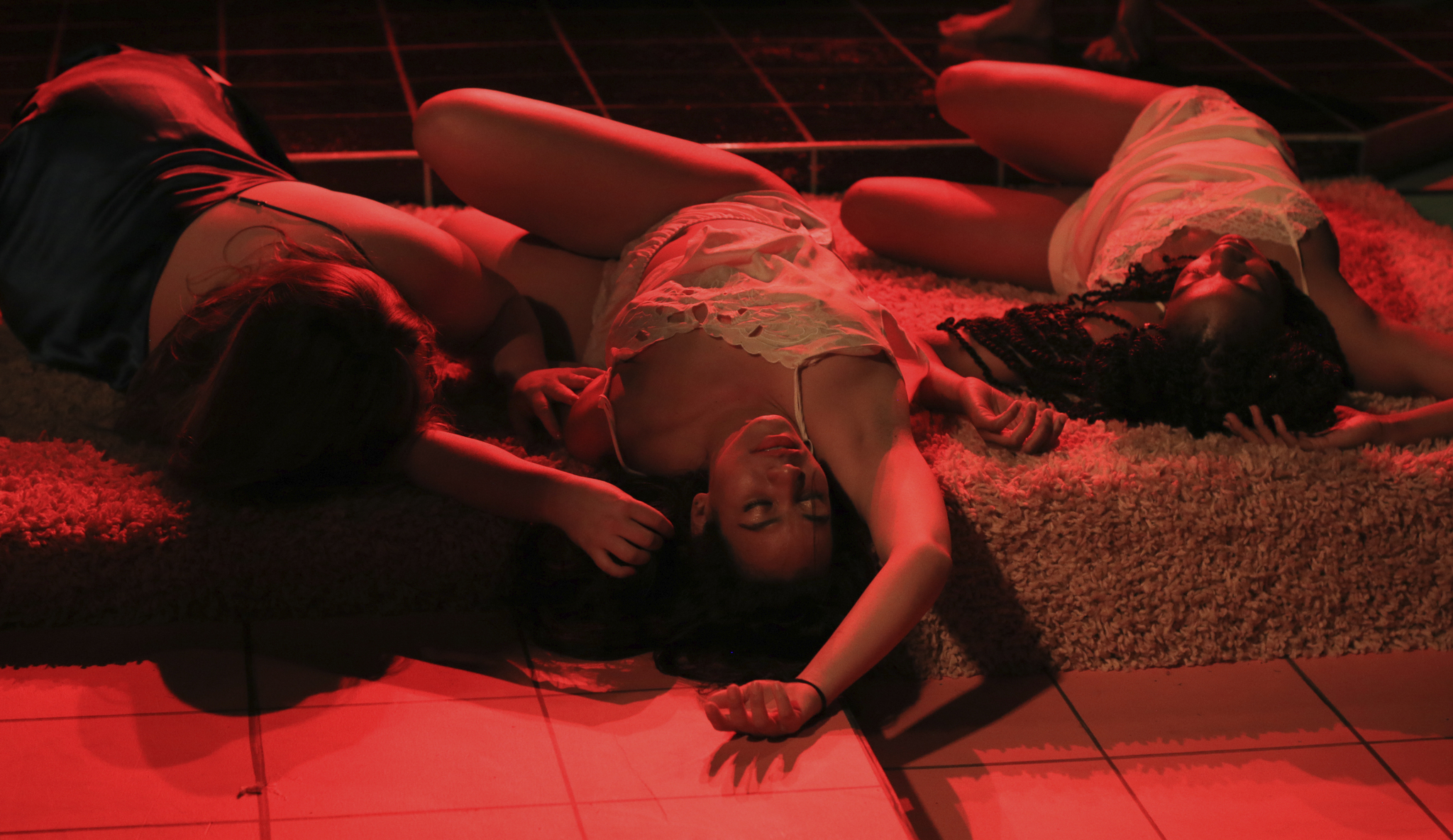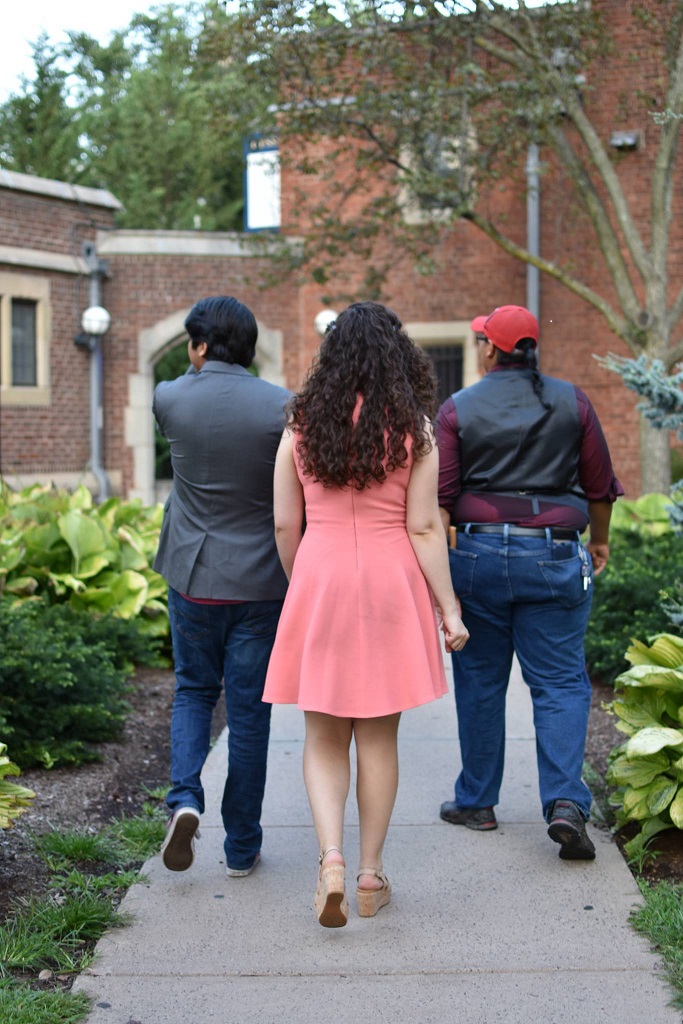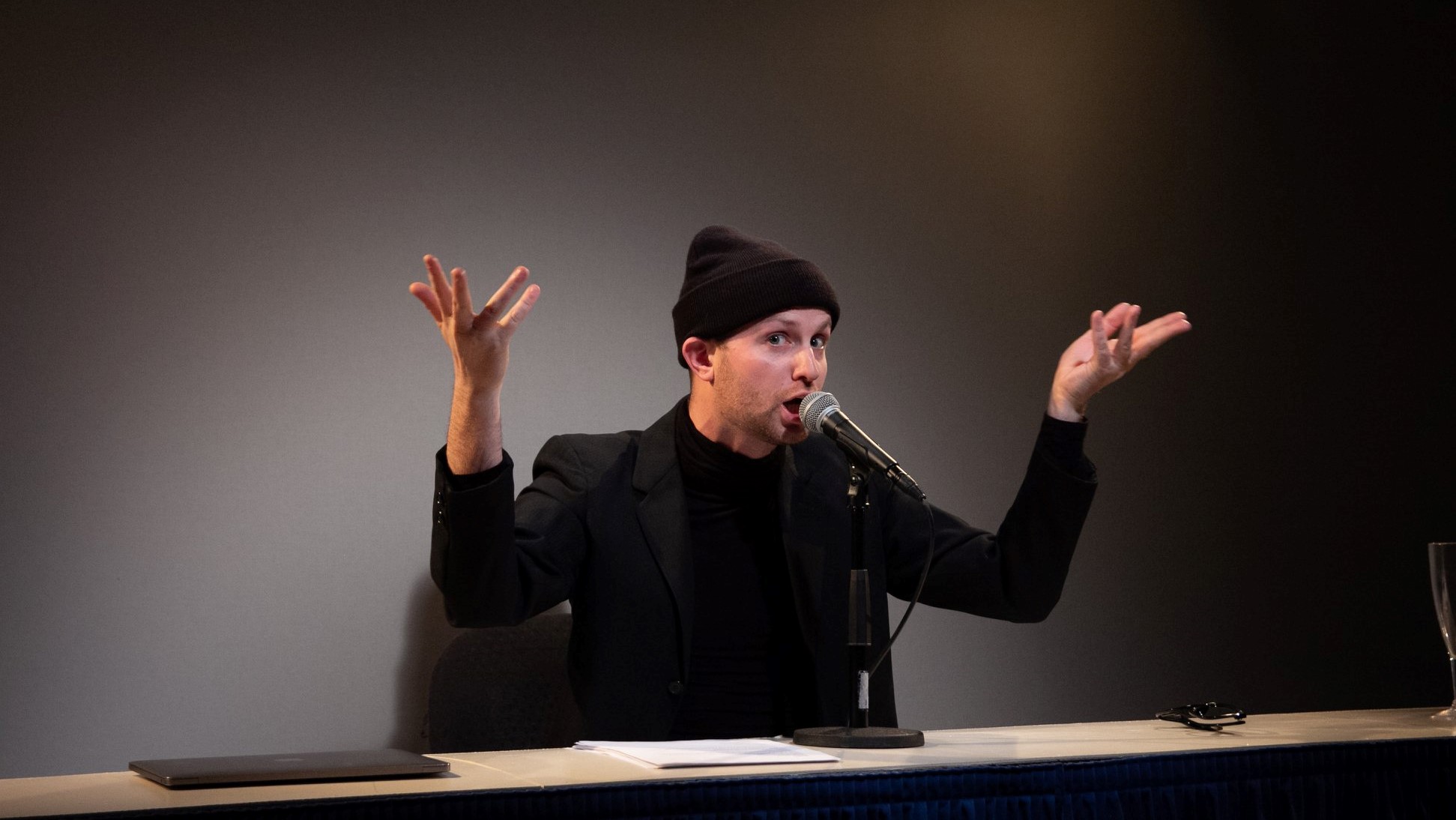Review: Latinos Who Look Like Ricky Martin, Yale Summer Cabaret
Xavier (Robert Lee Hart) likes to get to the meetings early. He has to set up the space, arrange the chairs and pens, erase the whiteboard and put up his huge yellow sticky-notes. Monica (Jackeline Torres Cortés) arrives on time. Together, they are the Latino Student Union at a college, after the graduation of the seniors who officiated last year. They need to figure out ways to pull in other students, and they need to decide who will lead them as their new president. And—a newly pressing matter—they must decide how to react to a racist slur—in Spanish—someone spray-painted in red on school property, clearly aimed at Latino students. Note: it’s the same slur U.S. President Donald J. Trump, in tweetspeak, flung at four non-white U.S. Congresswomen, all U.S. citizens.
Emilio Rodriguez’s Latinos Who Look Like Ricky Martin, directed by Jecamiah M. Ybañez, is the final play of the Yale Summer Cabaret’s Verano Season, which aimed to explore and expand and explode notions of Latinx culture. Rodriguez’s engaging and entertaining play seems made to order. While it could brood and wring its hands about burgeoning racism in the U.S., the play instead is very knowingly tongue-in-cheek about the earnest intentions of those who police the borders of identity. To adapt Pogo-cartoonist Walt Kelly’s familiar saying about “the enemy”: We have met the racists and they are us.
What could be the problem, you ask. Certainly only bona fide Latinos would want to be part of the Latino Student Union, right? Sure, but how will they know each other? Skin color, mother tongue, favorite foods and music and celebrity icon, the country or region of their ancestral origin? Xavier, who has a best-kept secret about his own upbringing, looks the part, but can’t speak Spanish. Isaac (Dario Ladani Sanchez), a newcomer, is from Puerto Rico, speaks Spanish but looks white—and doesn’t see why empanadas are automatically preferable to quesadillas or nachos as identity foods. Monica, who looks, speaks and dresses the part of colorful Latinx party girl, has her issues with Xavier’s overbearing efforts and the boys’ club atmosphere furnished by his heir-apparent relationship to outgoing president Oscar.
Monica (Jackeline Torres Cortés), Xavier (Robert Lee Hart), Isaac (Dario Ladani Sanchez) in Latinos Who Look Like Ricky Martin, Yale Summer Cabaret
There are reasons enough for grievances aplenty, and it all plays out with the lively tones of sitcom comedy—full of an ironic sparkle de rigueur for youths who know that they are always mouthing received images and ideas coming at them from their ever-present phones. Before we even get to the actual difficulties they face communicating and commiserating with each other, there’s a sharp sense of hyper-awareness registered by Ybañez and his cast that suits perfectly today’s collegiate. They know everything because everything is just a quick search away, and, what’s more, they know the whole world is potentially watching for anything inflammatory that anyone might share digitally.
And yet it is to Rodriguez’s credit that his characters aren’t simply caricatures. They play with our expectations and their own, and each is capable of pulling a surprise out of the hat—or tote, as the case may be. My one criticism of the plot’s trajectory is that Monica’s big reveal gets played out twice—once for Isaac and once for Xavier—when it would feel more dramatically surprising if we learned it when Xavier did (since the two have known each other longest and have a very appealing way of one-upping and supporting each other). Isaac’s own reveal comes across more as a weak plot point rather than a necessary factor in the situation—we might be happier with him as outsider than surprise insider. Such matters, by inviting some overthinking, can make the play feel more contrived than it needs to be.
Isaac (Dario Ladani Sanchez), Xavier (Robert Lee Hart)
What makes it work, in the Cab’s tight space with a wonderfully generic-appropriate meeting space complete with frosted-glass hall window by Elsa GibsonBraden, is the vividness of these three actors. Hart’s Xavier has so much attitude it fairly drips from all his comments and reactions, and, in one tense moment with Isaac, his pain is palpable. Yet Xavier is also terrifically funny in his obtuse single-mindedness. His identity is the Club in a way that can be at least a little off-putting to anyone who wants to “belong” in the room with him.
Monica (Jackeline Torres Cortés)
Cortés’ Monica is the life of the play, and her laughter is unpredictable and genuine. Monica likes to have fun and make fun, and her somewhat perverse strategy for drumming-up unity makes us take a second look at her. She may be the most politically astute—or at least she’s not taking Psychology (for the third time) for nothing. Sanchez plays Isaac with a certain canny vagueness; he’s the one we expect to have some ulterior motive because the other two aren’t sure about him, yet he seems so immediately likable and forthright we hope he will be the sensible one without the earnest investments of Xavier and Monica. His greater maturity is key to what he’s doing here—wearing, appropriately, what almost looks like a referee’s shirt.
In the end it seems that leading the Latino Club—like winning the presidency in the U.S.—is a zero-sum game, a fact that puts to flight any notion of “unity in community,” or “unidad in communidad,” or indeed unitedness among our 50 states to say nothing of between political parties. Rodriguez wants us to laugh at how ego-driven and shortsighted much of our need to be “in” is, as the tendency makes many aspects of life into popularity contests. And yet, trivial as that may seem, the wrong use of power—however attained—can leave those on the outside weaker and more desperate. The solidarity of others can be scary.
Xavier (Robert Lee Hart), Monica (Jackeline Torres Cortés), Isaac (Dario Ladani Sanchez)
Latinos Who Look Like Ricky Martin
By Emilio Rodriguez
Directed by Jecamiah M. Ybañez
Scenic Designer: Elsa GibsonBraden; Costume Designer: Stephanie Bahniuk; Lighting Designer: Evan Anderson; Sound Designer: Noel Nichols; Stage Manager: Edmond O’Neal
Ensemble: Jackeline Torres Cortés, Robert Lee Hart, Dario Ladani Sanchez
Yale Summer Cabaret Verano
August 8-17, 2019

